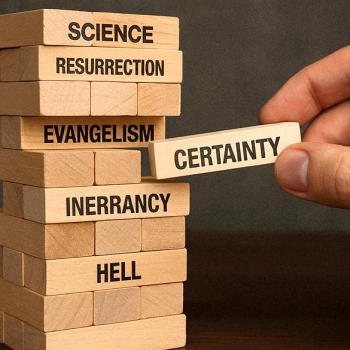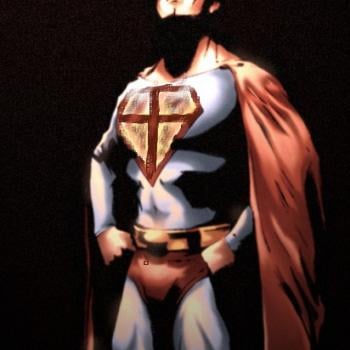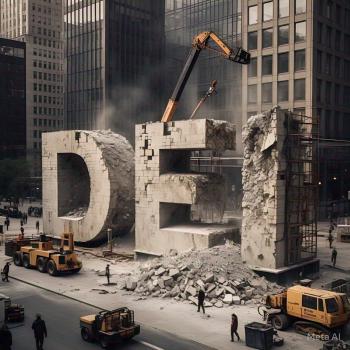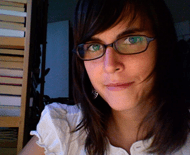By contrast, toward the other end of the political spectrum, there are many people - some of whom are directly affected by the legality of same-sex marriage and some of whom are not - who do feel passionate enough about the issue to advocate for it politically. Amy Lavine, the foundation relations officer for the Lesbian, Gay, Bisexual and Transgender Community Center in New York, also co-chairs the Marriage Equality Hevra, or social action group, that was started at her synagogue, B'Nai Jeshurun, three years ago. The group of 25 active members organizes an annual trip to the state capitol in Albany to lobby officials on Equality and Justice Day, an event sponsored by the Empire State Pride Agenda. For Lavine, her faith, in addition to her orientation, is central to her activism. "Not only is same-sex marriage a civil rights issue, but it's a very important issue for people of faith, and in particular for Jews, because Jews have always been at the forefront of civil rights," she says. "Members [of the Marriage Equality Hevra] feel strongly that given how vocal the opponents of same-sex marriage -- often people of faith -- have been, we feel all the more committed in presenting an alternative faith perspective that says that all people should be treated equally and that same-sex marriage does not threaten heterosexual marriage."
But perhaps the most surprising - and underreported - aspect of the same-sex marriage debate is the fact that not all gay people, regardless of religiosity, are prepared to advocate for this particular civil right. Jason Anthony, an editor, writer, and religion scholar, for one, thinks same-sex marriage is a horrible idea. "I think that gays are much more interesting than that," he argues. "To me, there is incredibly potent spirituality in being gay. For gays to step into this space of trying to ape heterosexual monogamy is wrong. It short-circuits the whole experience." Anthony, who describes himself as "not a Christian," believes that Christianity and same-sex marriage are incompatible and that new religions will form to accommodate the eventual acceptance of it. In the end, he tries to remain neutral about the current situation. "Personally, I think gay marriage is the wrong fight. So many of us believe that. At the same time, are we going to speak up against our brothers and sisters who are fighting for a civil right? No, of course not."
Like Anthony, Elna Baker also has a view on the issue that defies the simplistic conventions that most news media tend to employ in describing the debate around same-sex marriage. She recounts attending a protest at a Mormon temple in New York after Prop 8 was passed. After seeing signs labeling Mormonism as a religion of hate, she began to apologize to people. "I had a foot in both worlds, I understood both positions," she remembers. "It was the first time I really did feel my conscience was at odds with the thoughts of my religion." Unlike many Mormons, Baker, a writer in her mid-twenties, doesn't think same-sex marriage threatens the sanctity of the family. "I don't see what they have to do with each other," she says. "In my experience, when gay friends have gotten married, it changes that relationship and makes it more like a family. So allowing gay couples to change their relationship and commit is a positive thing."
Although Baker personally supports gay marriage, like many people in her age cohort-both conservative and progressive - she's hesitant to enter the political arena to advocate for her position. But at the same time, she is prepared to answer questions openly and honestly when she's presented with them. A comedian at heart, Baker's forthcoming book, The New York Regional Mormon Singles Halloween Dance, a witty adventure through her experiences as a young and modern Mormon in New York City, explores issues of sex and other taboos of conservative religious culture. Anticipating its upcoming release, she's sure she'll be asked about her position on same-sex marriage. She's also sure she'll be disliked by a lot of people, especially other Mormons, after making her views known. Reassessing her attitude toward involving herself politically over same-sex marriage, Baker concludes, "So I guess I am willing to go to the slaughter for it after all."
In the end, Baker's and the others' views are distinctive, even unique calculations involving morality, conscience, empathy and personal experience. All too often we only hear the voices of the most ardent supporters and the fiercest opponents of same-sex marriage, which means that other voices-which are just as numerous-tend to go unheard. There are many factors informing opinions on this issue, resulting not in a one-side-or-the-other debate, but rather many different shades of gray.





